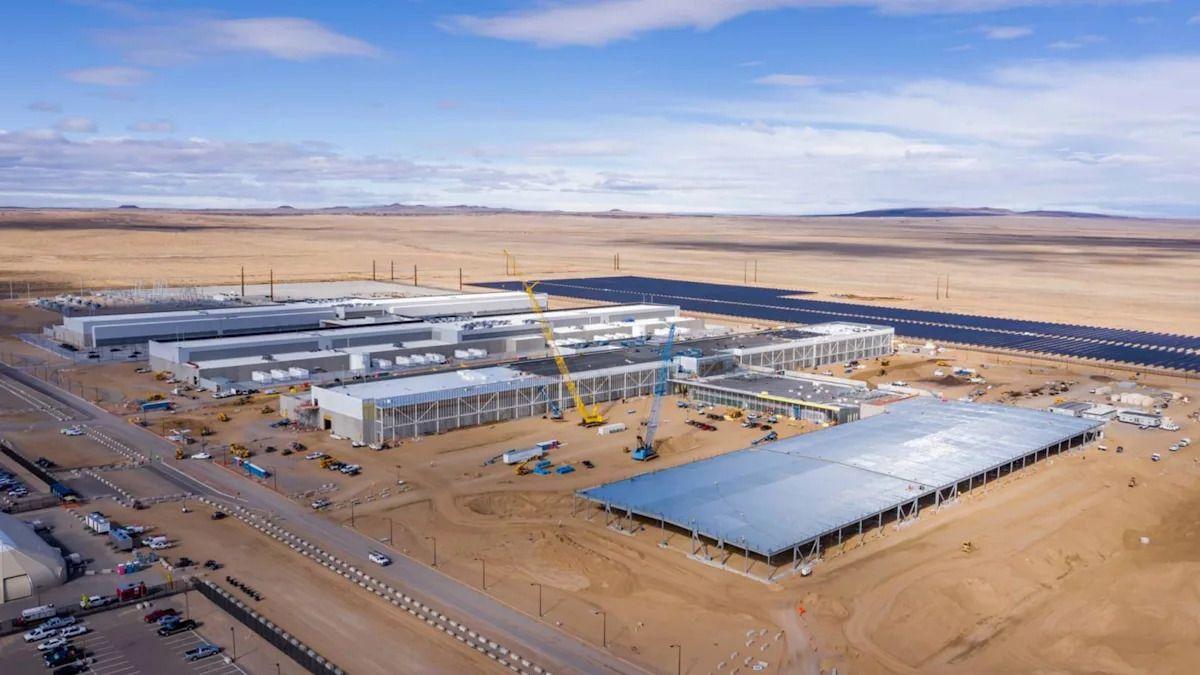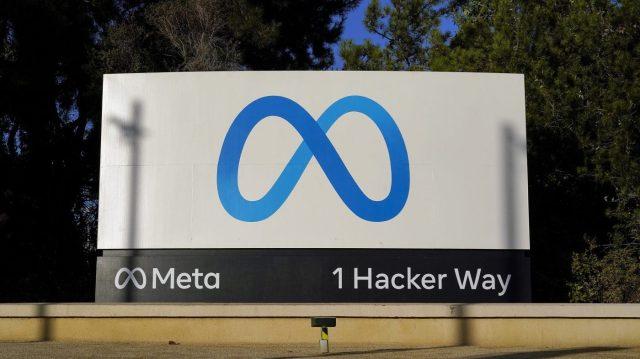Meta Partners with XGS Energy for Advanced Geothermal Power to Fuel AI Expansion
4 Sources
4 Sources
[1]
Meta inks a new geothermal energy deal to support AI
Justine Calma is a senior science reporter covering energy and the environment with more than a decade of experience. She is also the host of Hell or High Water: When Disaster Hits Home, a podcast from Vox Media and Audible Originals. Meta's geothermal ambitions are growing with a new agreement to support projects in New Mexico. It announced the deal with XGS Energy today, a company developing next-generation geothermal technologies that make it possible to use this energy source in places where it was unfeasible before. The plan is to add 150 megawatts of carbon pollution-free electricity to the power grid that Meta's data center plugs into in the region. Meta desperately needs more electricity for AI. Power grids are trying to meet that growing demand from data centers. And those needs are buoying geothermal startups like XGS Energy. "Advances in AI require continued energy to support infrastructure development," Urvi Parekh, global head of energy at Meta, said in a press release. "With next-generation geothermal technologies like XGS ready for scale, geothermal can be a major player in supporting the advancement of technologies like AI as well as domestic data center development." Geothermal plants generate electricity using Earth's heat; typically drawing up hot fluids or steam from natural reservoirs to turn turbines. That tactic is limited by natural geography, however, and the US gets around half a percent of its electricity from geothermal sources. Startups including XGS are trying to change that by making geothermal energy more accessible. Last year, Meta made a separate 150MW deal with Sage Geosystems to develop new geothermal power plants. Sage is developing technologies to harness energy from hot, dry rock formations by drilling and pumping water underground, essentially creating artificial reservoirs. Google has its own partnership with another startup called Fervo developing similar technology. XGS Energy is also seeking to exploit geothermal energy from dry rock resources. It tries to set itself apart by reusing water in a closed-loop process designed to prevent water from escaping into cracks in the rock. The water it uses to take advantage of underground heat circulates inside a steel casing. Conserving water is especially crucial in a drought-prone state like New Mexico, where Meta is expanding its Los Lunas data center. Meta declined to say how much it's spending on this deal with XGS Energy. The initiative will roll out in two phases with a goal of being operational by 2030. Meta committed to reaching net zero emissions by the end of the decade back in 2020. Energy-hungry data centers could push those goals further from reach, however, unless they can run on cleaner energy. Last week, Meta announced plans to get its hands on more carbon pollution-free electricity by helping revive an old nuclear reactor. But a utility in Louisiana has proposed building out three new gas-fired power plants to support a giant new Meta data center there. And Meta, like other tech giants, has seen its planet-heating pollution grow since setting its climate goal as it chases success in AI.
[2]
Meta signs deal for advanced geothermal power in New Mexico
NEW YORK, June 12 (Reuters) - Meta (META.O), opens new tab signed an agreement with XGS Energy to help develop 150 megawatts of advanced geothermal electricity in New Mexico to power the Facebook parent company's artificial intelligence expansion, the companies said on Thursday. WHY IT'S IMPORTANT Giant technology companies like Meta are striking unprecedented power deals to secure massive amounts of electricity for the data centers needed to develop AI, which is a top driver of the record U.S. power consumption projected for 2025 and 2026. Geothermal energy, which does not produce climate-warming carbon emissions, has become a popular source of electricity for Big Tech companies, many of which have emissions reduction goals. Unlike conventional geothermal power production, advanced geothermal does not rely on natural water sources. Last year, Google announced plans to fuel its data centers with advanced geothermal power produced by Fervo Energy. CONTEXT While 150 megawatts is a tiny fraction of the many gigawatts of power sought by technology companies to power AI, it would represent about 4% of total U.S. geothermal production. New Mexico, which lays claim to a section of the world's largest shale oil basin, has 160,000 megawatts of untapped geothermal power generation potential. The phased-in project between XGS and Meta is projected to be operational by the end of the decade. The advanced geothermal electricity will be deployed to the electric grid and support Meta's operations in the state. KEY QUOTE "With next-generation geothermal technologies like XGS ready for scale, geothermal can be a major player in supporting the advancement of technologies like AI as well as domestic data center development," Urvi Parekh, Global Head of Energy at Meta said in a written statement. "We're excited to partner with XGS to unlock a new category of energy supply for our operations in New Mexico," he said. Reporting by Laila Kearney; Editing by Sonali Paul Our Standards: The Thomson Reuters Trust Principles., opens new tab Suggested Topics:Carbon MarketsSustainable MarketsRegulatory OversightGovernanceGrid & Infrastructure
[3]
Meta is helping to fund geothermal energy projects in New Mexico
Meta has entered into an agreement with XGS Energy to develop "next-generation geothermal energy" projects in New Mexico. The plan is for these projects to connect directly into the electrical grid that Meta's data centers draw from, feeding the growing energy needs of the company's AI development. Both companies claim the new deal will add 150-megawatts of carbon-free energy to the grid "with zero operating water use." New Mexico is apparently uniquely suited for geothermal energy production because the state has "some of the best hot rock resources in the country," according to the deal announcement. XGS Energy's approach will allow "these hot, but typically dry, rock resources" to be used to produce electricity without having to worry about water accessibility. The agreement is split into two phases, an initial smaller one and a second larger one, both of which are "projected to be operational by 2030." Meta has previously explored geothermal energy through a partnership with Sage Geosystems, and like its past deals -- including Meta's recent 20-year agreement to use a nuclear power plant in Illinois -- the company is focused on finding more sources of energy for its AI data centers. "Advances in AI require continued energy to support infrastructure development," Urvi Parekh, Meta's Global Head of Energy, shared in the deal announcement. "With next-generation geothermal technologies like XGS ready for scale, geothermal can be a major player in supporting the advancement of technologies like AI as well as domestic data center development."
[4]
Meta signs deal for advanced geothermal power in New Mexico
NEW YORK (Reuters) -Meta signed an agreement with XGS Energy to help develop 150 megawatts of advanced geothermal electricity in New Mexico to power the Facebook parent company's artificial intelligence expansion, the companies said on Thursday. WHY IT'S IMPORTANT Giant technology companies like Meta are striking unprecedented power deals to secure massive amounts of electricity for the data centers needed to develop AI, which is a top driver of the record U.S. power consumption projected for 2025 and 2026. Geothermal energy, which does not produce climate-warming carbon emissions, has become a popular source of electricity for Big Tech companies, many of which have emissions reduction goals. Unlike conventional geothermal power production, advanced geothermal does not rely on natural water sources. Last year, Google announced plans to fuel its data centers with advanced geothermal power produced by Fervo Energy. CONTEXT While 150 megawatts is a tiny fraction of the many gigawatts of power sought by technology companies to power AI, it would represent about 4% of total U.S. geothermal production. New Mexico, which lays claim to a section of the world's largest shale oil basin, has 160,000 megawatts of untapped geothermal power generation potential. The phased-in project between XGS and Meta is projected to be operational by the end of the decade. The advanced geothermal electricity will be deployed to the electric grid and support Meta's operations in the state. KEY QUOTE "With next-generation geothermal technologies like XGS ready for scale, geothermal can be a major player in supporting the advancement of technologies like AI as well as domestic data center development," Urvi Parekh, Global Head of Energy at Meta said in a written statement. "We're excited to partner with XGS to unlock a new category of energy supply for our operations in New Mexico," he said. (Reporting by Laila Kearney; Editing by Sonali Paul)
Share
Share
Copy Link
Meta signs a deal with XGS Energy to develop 150 megawatts of advanced geothermal electricity in New Mexico, aiming to power its growing AI infrastructure with clean energy.
Meta's Geothermal Deal to Power AI Expansion
Meta, the parent company of Facebook, has announced a groundbreaking agreement with XGS Energy to develop 150 megawatts of advanced geothermal electricity in New Mexico
1
. This partnership marks a significant step in Meta's efforts to secure sustainable energy sources for its rapidly expanding artificial intelligence (AI) infrastructure.The Need for Clean Energy in AI Development
As AI technologies continue to advance, the demand for electricity to power data centers has skyrocketed. Meta, like other tech giants, is facing the challenge of meeting this growing energy need while adhering to its climate goals
2
. Urvi Parekh, Global Head of Energy at Meta, emphasized the importance of this initiative, stating, "Advances in AI require continued energy to support infrastructure development"3
.XGS Energy's Innovative Geothermal Technology

Source: Market Screener
XGS Energy is at the forefront of next-generation geothermal technologies. Unlike conventional geothermal power production, which relies on natural water sources, XGS's approach allows for the exploitation of geothermal energy from dry rock resources
1
. The company's closed-loop process is designed to conserve water, a crucial factor in drought-prone regions like New Mexico1
.Project Details and Timeline

Source: Engadget
The agreement between Meta and XGS Energy is structured in two phases, with the goal of being operational by 2030
4
. The advanced geothermal electricity will be deployed to the electric grid, supporting Meta's operations in New Mexico, including its expanding Los Lunas data center1
.Impact on U.S. Geothermal Production
While 150 megawatts represents a small fraction of the total power required by tech companies for AI development, it would account for approximately 4% of total U.S. geothermal production
2
. This project taps into New Mexico's vast untapped geothermal potential, estimated at 160,000 megawatts2
.Related Stories
Tech Industry's Shift Towards Clean Energy
Meta's geothermal deal is part of a broader trend in the tech industry. Companies are increasingly seeking innovative clean energy solutions to power their data centers while meeting emissions reduction goals. Google, for instance, has partnered with Fervo Energy for advanced geothermal power
2
. These initiatives are crucial as the U.S. projects record power consumption in 2025 and 2026, largely driven by AI development2
.Challenges and Future Outlook
Despite these efforts, Meta faces challenges in balancing its rapid AI expansion with its commitment to reaching net zero emissions by 2030
1
. The company's planet-heating pollution has grown since setting its climate goal, highlighting the ongoing tension between technological advancement and environmental responsibility1
.As the project unfolds, it will be closely watched as a potential model for sustainable energy solutions in the AI era, potentially reshaping the landscape of both the tech and energy sectors in the coming years.
References
Summarized by
Navi
[1]
[4]
Related Stories
Recent Highlights
1
Google Gemini 3.1 Pro doubles reasoning score, beats rivals in key AI benchmarks
Technology

2
ByteDance's Seedance 2.0 AI video generator triggers copyright infringement battle with Hollywood
Policy and Regulation

3
ChatGPT cracks decades-old gluon amplitude puzzle, marking AI's first major theoretical physics win
Science and Research








